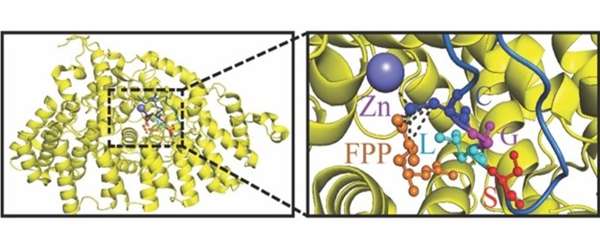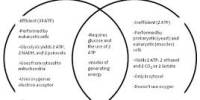In mouse studies, Johns Hopkins Medicine researchers say they have added to evidence that the compound farnesol, found naturally in herbs, berries, and other fruits prevents and reverse brain damage associated with Parkinson’s disease.
By deactivating PARIS, a key protein involved in the progression of the disease, the compound, which is used in flavorings and perfume-making, can prevent the loss of neurons that produce dopamine in the brains of mice. The loss of such neurons affects movement and cognition, resulting in Parkinson’s disease symptoms such as tremors, muscle rigidity, confusion, and dementia. According to the researchers, farnesol’s ability to block PARIS could guide the development of new Parkinson’s disease interventions that specifically target this protein.
“Our experiments showed that farnesol both prevented and reversed dopamine neuron loss in mice, indicating its promise as a potential drug treatment to prevent Parkinson’s disease,” says Ted Dawson, M.D., Ph.D., director of the Johns Hopkins Institute for Cell Engineering and professor of neurology at the Johns Hopkins University School of Medicine.
Researchers say they have added to evidence that the compound farnesol, found naturally in herbs, and berries, and other fruits, prevents and reverses brain damage linked to Parkinson’s disease in mouse studies.
The new study’s findings, published in Science Translational Medicine, describe how the researchers discovered farnesol’s potential by screening a large library of drugs for those that inhibited PARIS.
A buildup of PARIS in the brains of people with Parkinson’s disease slows the production of the protective protein PGC-1alpha. The protein protects brain cells from potentially harmful reactive oxygen molecules that accumulate in the brain. Dopamine neurons die off in the absence of PGC-1alpha, resulting in the cognitive and physical changes associated with Parkinson’s disease.
The researchers fed mice either a farnesol-supplemented diet or a regular mouse diet for one week to see if farnesol could protect brains from the effects of PARIS accumulation. The researchers then gave the mice pre-formed fibrils of the protein alpha-synuclein, which has been linked to the effects of Parkinson’s disease in the brain.

The mice fed the farnesol diet performed better on a strength and coordination test designed to detect the progression of Parkinson’s disease symptoms, according to the researchers. On average, the mice outperformed mice that had been injected with alpha-synuclein but were fed a regular diet.
When the researchers examined brain tissue from the two groups of mice, they discovered that mice fed a farnesol-enriched diet had twice as many healthy dopamine neurons as mice not fed a farnesol-enriched diet. In addition, farnesol-fed mice had approximately 55% more of the protective protein PGC-1alpha in their brains than untreated mice.
Farnesol binds to PARIS, changing its shape so that it no longer interferes with PGC-1alpha production, according to chemical experiments. While farnesol is naturally produced, synthetic versions are used in commerce, and the amounts consumed by humans are unknown. The researchers warn that safe farnesol doses for humans have yet to be determined and that only carefully controlled clinical trials can do so.
Though more research is needed, Dawson and his colleagues hope that farnesol will one day be used to develop treatments that will prevent or reverse brain damage caused by Parkinson’s disease. “Our findings show that farnesol both significantly prevents dopamine neuron loss and reverses behavioral deficits in mice, indicating its potential as a drug treatment to prevent Parkinson’s disease,” said Professor Ted Dawson.
While farnesol is naturally produced, synthetic versions are used in commerce, and it is unclear how much people consume through their diets. The researchers cautioned that safe doses of farnesol for humans have yet to be determined, implying that more research is required. However, Dawson and his colleagues hope that in the future, farnesol will be used to develop treatments to prevent or reverse brain damage caused by Parkinson’s disease.
















